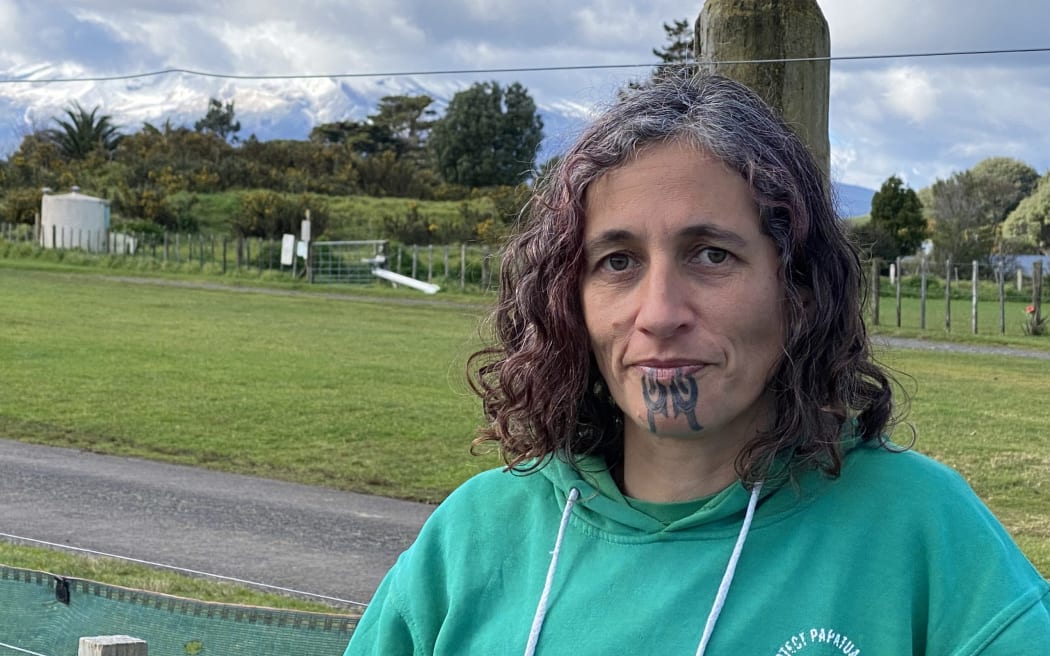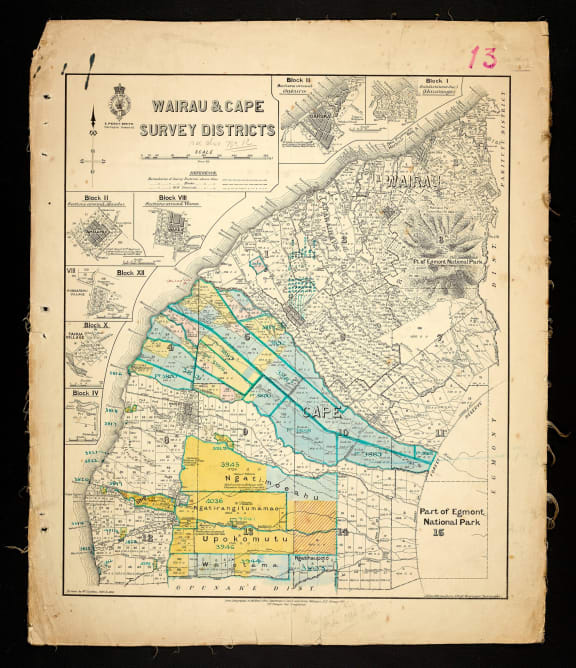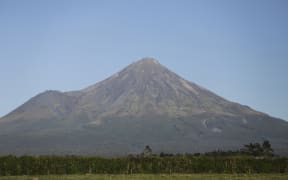
Tuhi-Ao Bailey says Parihaka is already weathering climate change impacts and wants oil and gas drilling banned from its rohe. Photo: Supplied / Te Korimako o Taranaki
Parihaka trustees are optimistic no drilling for oil and gas will be allowed on the pā's historical land, despite silence from the Minister of Energy and Resources.
Last month Parihaka Papakāinga Trust asked minister Megan Woods not to issue any exploration drilling permits on the Parihaka Block, a week before bids closed for the government's latest Permit Block Offer 2020.
Trust chairperson Tuhi-Ao Bailey was disappointed but unsurprised not to have heard back from Woods.
"I don't think we fit their process at the moment because they have processes for iwi, maybe hapū, but Parihaka's a bit different.
"We don't hold mana whenua: It's mana tikanga is how we talk about it, that we're kind've the political voice.
"The hapū have their own voices as well and the same with the iwi - but Parihaka is also made up of those iwi and those hapū."

Much of the land in the blue-and-yellow block on this historic map is excluded from the current exploration permit round, but the western side and all the land to the coast is up for grabs. Photo: Supplied
The silence from Wellington comes despite 2017's deed of reconciliation Te Kawenata o Rongo, which created a Parihaka-Crown Leaders Forum and a relationship agreement with central and local government agencies.
The relationship agreement includes the government's oil and gas manager the Ministry of Business Innovation and Employment (MBIE) and promises "a co-operative and enduring relationship for the purpose of assisting the Parihaka community with its development projects."
Bailey said MBIE's NZ Petroleum and Minerals agency has not formed a relationship with Parihaka.
But she was confident Taranaki iwi would use the official process to press for Parihaka's request that drillers be kept out.
"We're adamant that oil and gas drilling is not sustainable for our communities and our environment, it's not part of our future.
"We know we've always got the back-up of our iwi… They always argue for the hapū and Parihaka - that's what they do."
In 2013 iwi lobbying saw Parihaka win a drilling exclusion zone around the pā, its farmland and a buffer zone.
The papakāinga trust's letter to Woods asked for the rest of Parihaka lands to also be taken off the table.
"Parihaka is not just the existing legal boundary of our small remaining papakāinga reserve... Parihaka stretched from the maunga to the moana."
The Parihaka Block was described in a 1993 report to the Waitangi Tribunal as 18,000 hectares from the national park boundary to the sea between the Waiweranui and Moutoti Streams.

The acting national manager of NZ Petroleum and Minerals, Anna Cook, said about 7600 hectares including and surrounding Parihaka Pā were kept out of the latest Block Offer as a result of submissions from Taranaki iwi.
The excluded area is on the inland side of the rohe, but a large swathe of land reaching to the coast is still up for grabs.
Bailey said the seaward land meant the most, as that was where people had lived for centuries.
"You can see them all around the place, all the pā, and we've got maps where all the māra (gardens) were and all the names. Every tiny stream here has a name, every coastal settlement has a name.
"It's the most fertile land - the big wetlands where we had our harakeke and raupō and all those things that we built our houses with."
Cook said before the Block Offer 2020 was made, MBIE consulted iwi across Taranaki on an initial 2630 square kilometres.
"Iwi provided written feedback on their interests in relation to this consultation area, and MBIE met with iwi to discuss their feedback."
"The total release area for Block Offer 2020 was 40 percent smaller than the initial consultation area."
She said any permit granted also demanded drilling companies "regularly engage" with iwi and hapū directly affected.
"Permit holders must also report on this engagement. Activities to be undertaken within 200 metres of areas of significance to iwi will also require specific early engagement obligations."
Cook said any bids for exploration permits were confidential for several months until evaluated and decided on.
Bailey said concerns about the oil and gas industry included physical land disturbance, pollution and impacts on wāhi tapu and other significant areas.
"But climate change is the biggest one that's affecting us today - y'know we got flooded last year.
"We're struggling with diseases and pests and anxiety. Changing climate is making everything go crazy."
She said Parihaka hoped its call for drilling to stop would spread further.
"We're hoping that they realise it should be the whole of Taranaki, the whole country needs to stop. We're not just doing it for ourselves."
Local Democracy Reporting is Public Interest Journalism funded through NZ On Air



